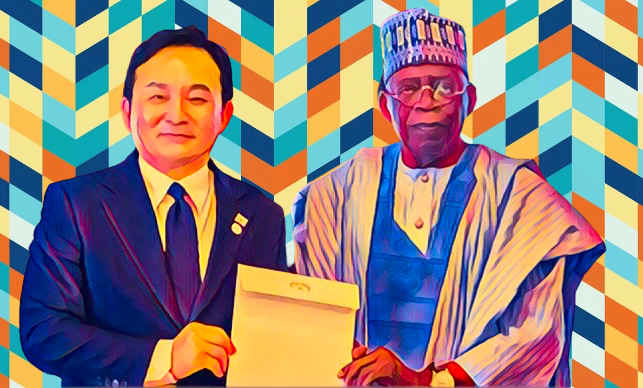In a bid to bolster Nigeria’s manufacturing sector, prominent Nigerian politician Bola Tinubu has expressed a keen interest in fostering stronger ties with South Korea. Tinubu, a former governor of Lagos State and a prominent figure in Nigerian politics, sees the potential for significant collaboration between the two nations to enhance industrial capacity.
Tinubu’s remarks came during a meeting with the South Korean ambassador to Nigeria, Kim Young-Chae, where discussions centered on exploring avenues for partnership in various sectors, particularly manufacturing. Emphasizing the importance of technology transfer and knowledge exchange, Tinubu highlighted South Korea’s remarkable progress in industrialization and its status as a global leader in technology and innovation.
South Korea, often hailed for its rapid economic development, boasts a robust manufacturing sector known for its excellence in various industries, including electronics, automobiles, and shipbuilding. Tinubu sees South Korea as an ideal partner for Nigeria to learn from and collaborate with to develop its own manufacturing capabilities.
Nigeria, Africa’s largest economy, has long grappled with challenges in its manufacturing sector, ranging from inadequate infrastructure to limited access to financing and skilled labor. Despite its vast natural resources and growing population, Nigeria’s industrial output remains relatively low compared to its potential.
However, with the right partnerships and strategic investments, there is optimism that Nigeria can harness its abundant resources and human capital to revitalize its manufacturing sector and drive sustainable economic growth. Tinubu’s initiative to strengthen ties with South Korea reflects a growing recognition of the importance of international cooperation in achieving this goal.
As both countries seek to recover from the economic impacts of global challenges, including fluctuating commodity prices and geopolitical uncertainties, collaboration in manufacturing could offer a pathway to resilience and prosperity. By leveraging each other’s strengths and expertise, Nigeria and South Korea have the opportunity to build mutually beneficial partnerships that contribute to job creation, technology transfer, and economic development.
In a world increasingly interconnected by trade and investment, fostering strong partnerships between nations is crucial for addressing common challenges and seizing opportunities for shared prosperity. As Nigeria and South Korea embark on this journey of collaboration in manufacturing, there is optimism that their combined efforts will pave the way for a brighter future, not only for their own citizens but also for the broader global community.
Source: Tribune



